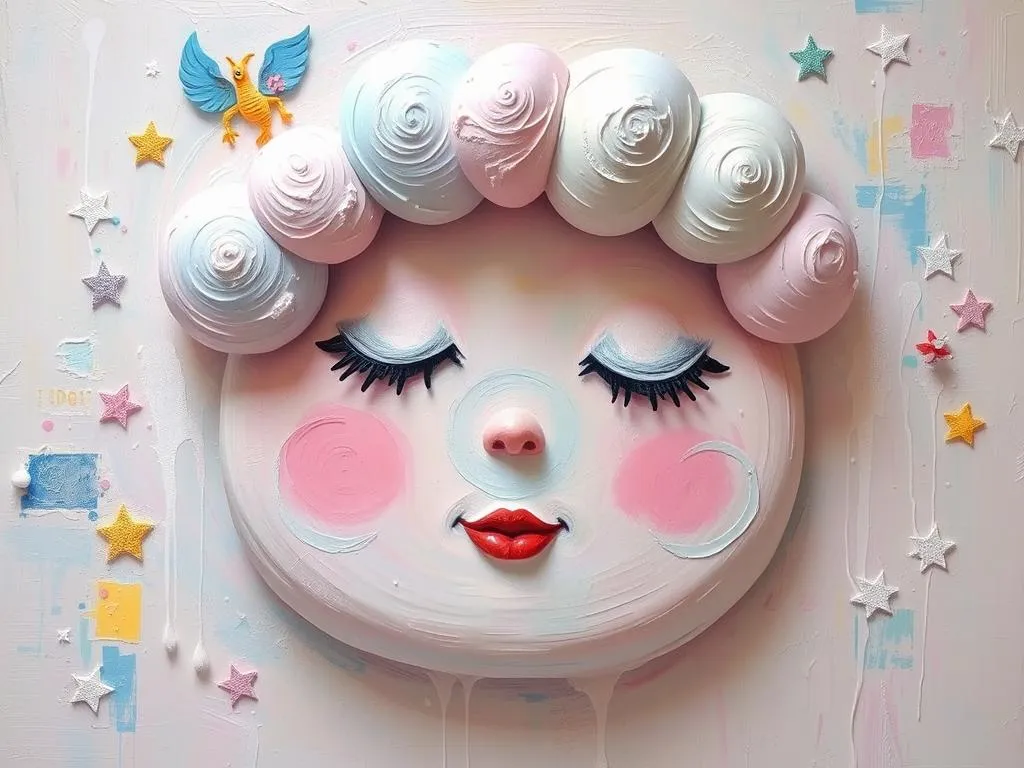
Have you ever awakened from a dream and found yourself pondering its meaning, especially if the dream featured skin color in a significant way? Dreams are often a mirror reflecting our inner thoughts and feelings, and skin color can symbolize a myriad of things, from identity and race to emotional states and personal perceptions. Exploring this fascinating dream symbol can provide profound insights into your psyche, relationships, and personal growth.
In our increasingly diverse world, skin color carries profound cultural significance, often tied to our experiences and societal influences. Thus, when skin color appears in dreams, it can evoke a spectrum of meanings. Whether it’s your own skin tone, that of someone else, or even an unusual or fantastical hue, understanding these dreams can be a journey of self-discovery. Let’s delve into the layers of meaning behind skin color in dreams, navigating through symbolic interpretations, personal experiences, and avenues for growth.
Shades of Meaning: Decoding Skin Color in Dreams
When it comes to dream symbolism, skin color can signify a variety of concepts, ranging from identity and societal perception to emotional states and personal experiences. It serves as a canvas upon which our subconscious paints our thoughts, fears, and desires.
-
Identity and Heritage: Skin color often relates to our cultural background and personal identity. Dreaming of your own skin color can underscore feelings of pride or conflict regarding your heritage. For example, dreaming of a darker skin tone might evoke feelings of strength or connection to roots, while a lighter tone might express longing for acceptance or belonging in certain social circles.
-
Emotional State: The color of skin can also reflect your emotional landscape. For instance, dreaming of pale skin might symbolize feelings of vulnerability or fear, while deeper shades could represent confidence, warmth, or even passion. The hue could be a direct reflection of how you perceive your emotional well-being at that moment.
-
Social Commentary: In dreams, skin color can also represent societal issues, such as racism, discrimination, or privilege. If you dream of encountering a person with a different skin tone, it might symbolize your feelings towards diversity or your position within a social hierarchy. Such dreams can be a call to examine your beliefs and attitudes towards others.
-
Transformation and Change: Unusual skin colors, such as green or blue, can signal transformation or a departure from your usual self. This might indicate a desire for change or a need to express yourself in a new way. These colors can embody feelings of alienation or uniqueness, urging you to embrace your individuality.
-
Connection and Relationships: Skin color in dreams can also signify how you relate to others. Dreaming of a loved one with a specific skin tone may represent your connection or disconnection with them. This could be a subconscious reflection of your feelings towards their identity or your shared experiences.
These interpretations reveal that skin color in dreams is not merely a visual element but a rich tapestry woven from our identities, emotions, and social contexts.
Reflections in the Mirror: Personal Experiences with Skin Colour Dreams
To better understand how skin color manifests in dreams, let’s explore some scenarios that might resonate with your own experiences. Each narrative can provide a unique perspective on how your subconscious grapples with identity, emotions, and relationships.
Scenario 1: The Familiar Shade
Imagine you dream of looking in the mirror and seeing your skin glowing vibrantly. This dream might reflect your self-acceptance and confidence. It could signify a phase where you embrace your identity, celebrating the unique qualities that set you apart. This dream encourages you to continue nurturing your self-love and authenticity.
Scenario 2: The Other’s Skin
In another dream, you find yourself interacting with a stranger who has a skin color vastly different from yours. This could symbolize your awareness of diversity and perhaps a desire to connect with others from various backgrounds. It may prompt you to reflect on your beliefs and biases, and consider how you can foster inclusivity in your waking life.
Scenario 3: The Changing Colors
Picture this: you dream that your skin changes color throughout the dream. At times, it’s bright green, then shifts to a deep blue, and finally settles on a warm brown. This dream might signal a period of transformation in your life, highlighting your evolving sense of self. It could mean you’re undergoing significant changes that affect how you view yourself and your place in the world.
Scenario 4: The Pale Reflection
Consider a dream where you look at your reflection and see your skin appearing pale and sickly. This may indicate feelings of vulnerability or fear about your current state — perhaps feeling overwhelmed or lacking energy. Such a dream calls for self-care and attention to your emotional and physical well-being.
Scenario 5: The Healing Touch
Finally, envision dreaming of a loved one with warm, inviting skin, reaching out to touch you. This dream can symbolize comfort, support, and a strong connection with that person. It reflects feelings of safety and love, reinforcing the importance of relationships in your life.
These scenarios illustrate the diverse interpretations of skin color in dreams, showing how they can mirror our inner emotional states and social realities. Each dream serves as a reminder of the multifaceted nature of our identities and the relationships we cultivate throughout our lives.
Beyond the Surface: Cultivating Growth Through Skin Colour Dreams
Understanding the significance of skin color in dreams can be a powerful tool for personal growth. By reflecting on your dreams and the emotions they evoke, you can gain insight into your identity, relationships, and societal attitudes. Here are some practical steps to help you navigate this journey of self-discovery.
-
Journaling Your Dreams: Keeping a dream journal can aid in uncovering patterns and themes related to skin color. Write down your dreams upon waking, noting the colors, emotions, and any significant figures present. Over time, you may begin to see connections between your dreams and your waking life.
-
Embrace Self-Reflection: Take time to reflect on your feelings about your own skin color and those of others. Ask yourself what emotions arise when you think about your identity. Are there any societal pressures or biases that influence your perceptions? Understanding these elements can promote deeper self-awareness and empathy.
-
Engage in Open Dialogue: Discussing dreams and the meanings behind skin color with friends or in communities can expand your understanding. Sharing experiences can foster a sense of connection and provide new perspectives on issues of race, identity, and belonging.
-
Seek Cultural Understanding: Learn about different cultures and their associations with skin color. This knowledge can enrich your understanding of your dreams and help you appreciate the diversity of experiences and perceptions in the world.
-
Practice Acceptance: Regardless of what your dreams reveal, practice acceptance of yourself and others. Recognizing the beauty in diversity and embracing your own unique identity can lead to a more fulfilling life both in your dreams and waking moments.
As you embark on this journey of understanding, remember that dreams are deeply personal. They can provide insights into our fears, desires, and aspirations. Reflecting on the symbolism of skin color can help you confront and embrace your identity, leading to deeper connections with yourself and others.
In conclusion, dreams featuring skin color serve as a profound reminder of the complexities of identity and the richness of our emotional landscapes. As you navigate your own dreams, take a moment to reflect on what skin color may symbolize for you. What truths might surface from the depths of your unconscious? The answers may lead you to a greater understanding of yourself and a more profound appreciation for the colorful tapestry of humanity.







